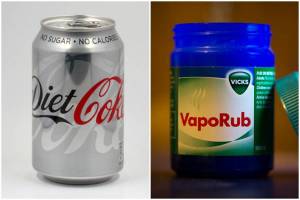When my boss fired me, I said “Yup, that makes sense,” and gathered up my things to go.
He didn’t mince words and neither did I — we wished each other well and that was that. I had been eating tortilla chips at my desk before he called me into his office, and the thing I remember most was my face flushing at how loud the bag crinkled as my coworkers watched me pack my things.
My firing didn’t come as a surprise to anyone. My team and I had struggled for months, and it was obviously due to my inexperience and subsequent unhappiness working in an environment fraught with stress. In fact, I’d already interviewed for a few different positions and was planning to leave the company soon.
Taken in that context, the dismissal itself shouldn’t have been much of a blow. If anything, this is a blessing! I told myself as I took the elevator to the ground floor, thinking of the severance pay and unemployment benefits that I would receive. I feel liberated. And then I stepped out onto the street in the Financial District of New York and immediately, uncontrollably, started to cry.
This isn’t a thinkpiece on millennials, but I’d be remiss if I failed to acknowledge that I am one.
I like selfies and Instagram and I have at some point in my life received a participation ribbon for something. More importantly, like most of my (white, middle-class) peers, I was raised to believe that there was nothing I couldn’t accomplish if I worked for it. You may know that this is not true. I, until recently, did not.
I’ve never felt entitled to success, but I misguidedly learned that my work was. I got just about everything I worked for in college — good grades, competitive internships, a job offer before graduation — but only because I was busting my ass to get them. I had a resume out the door, as did many of my bright and successful peers. Many of us seemed to land the trifecta of expectations (Job! Benefits! Apartment!) pretty quickly. It seemed like all of those you-can-do-it-isms were true. And then a whole bunch of us got fired.
If you’re planning on raising a kid, I highly recommend not letting them get to 22 without experiencing at least one real, crushing failure in their life.
It knocks you for a loop. I interpreted my firing as a sign of some immense personal flaw, something of which to be deeply ashamed, a mark of my incapability as a worker and as a person.
The reality was much less dramatic: I just wasn’t the right person for the job. I’d been hired to replace a woman with an MBA and 10 years of job-specific experience at a fast-paced corporate marketing agency. I, on the other hand, was a liberal arts undergrad and aspiring writer whose foremost strength lay in using my personality to make up for what I lacked in managerial skill. I thought I could do any job if I tried hard enough. But there are just some jobs for which you need more than a good work ethic, and I learned that the hard way.
Looking back, I wish someone had taught me how instructive failure could be in figuring out where I was headed. Rather than fear-mongering me about the job market, I wish someone had told me that periods of unemployment are to be expected, no matter how hard-working you may be. I wish I’d known that, if done right, joblessness can be something that I use to my advantage.
Being unemployed taught me how to function as an individual instead of an employee or a student for the first time in my life.
I got to see what a week might look like without a boss or professor’s expectations shaping my schedule. I gave myself the flexibility to work during hours that I felt productive and to take breaks when I hit a slump. And most importantly, I proved to myself that I had planned well enough to live comfortably for a period of time on a deficit budget, which meant that I didn’t need to pressure myself into taking a job that made me unhappy for fear of being unable to pay the bills.
The whole experience gave me confidence in my own capability, allowed me the opportunity to recalibrate my early career with a clear perspective, and helped me redefine success in the context of my own happiness instead of someone else’s.
What I ended up learning while I was unemployed is that I’m not cut out for office life, and that there are other options.
I liked living on my own schedule so much that I decided to find a job that would let me keep doing just that, which is why I’m now a full-time freelance writer and marketing consultant. I manage my own workflow and determine my own location, which is why I’m currently writing this from the southern coast of Spain. If I work 40 hours for 50 weeks like a regular employee, I’ll actually make more money this year than I was making at my old job. But the best thing about my work is I also get to toggle my hours up or down according to whether I need more money or more time to live my life.
All that came from being granted a period in which I had absolute freedom to explore what I really wanted and was capable of. But I never would have leapt into the abyss of full-time self-employment if I hadn’t been pushed.
So that’s the answer, friends: If at first you don’t succeed, try again. Or try something else. Or take some time for yourself. Falling short of success is a part of life at every stage, even the times when you feel young and fresh and promising. So you failed — get up. In most cases, the likelihood is that you have everything you need to pull through it just fine. And once you do, you’ll be that much stronger for it in the end. I certainly am.
This story was originally published on Medium in 2016 and is reprinted here with permission.


































